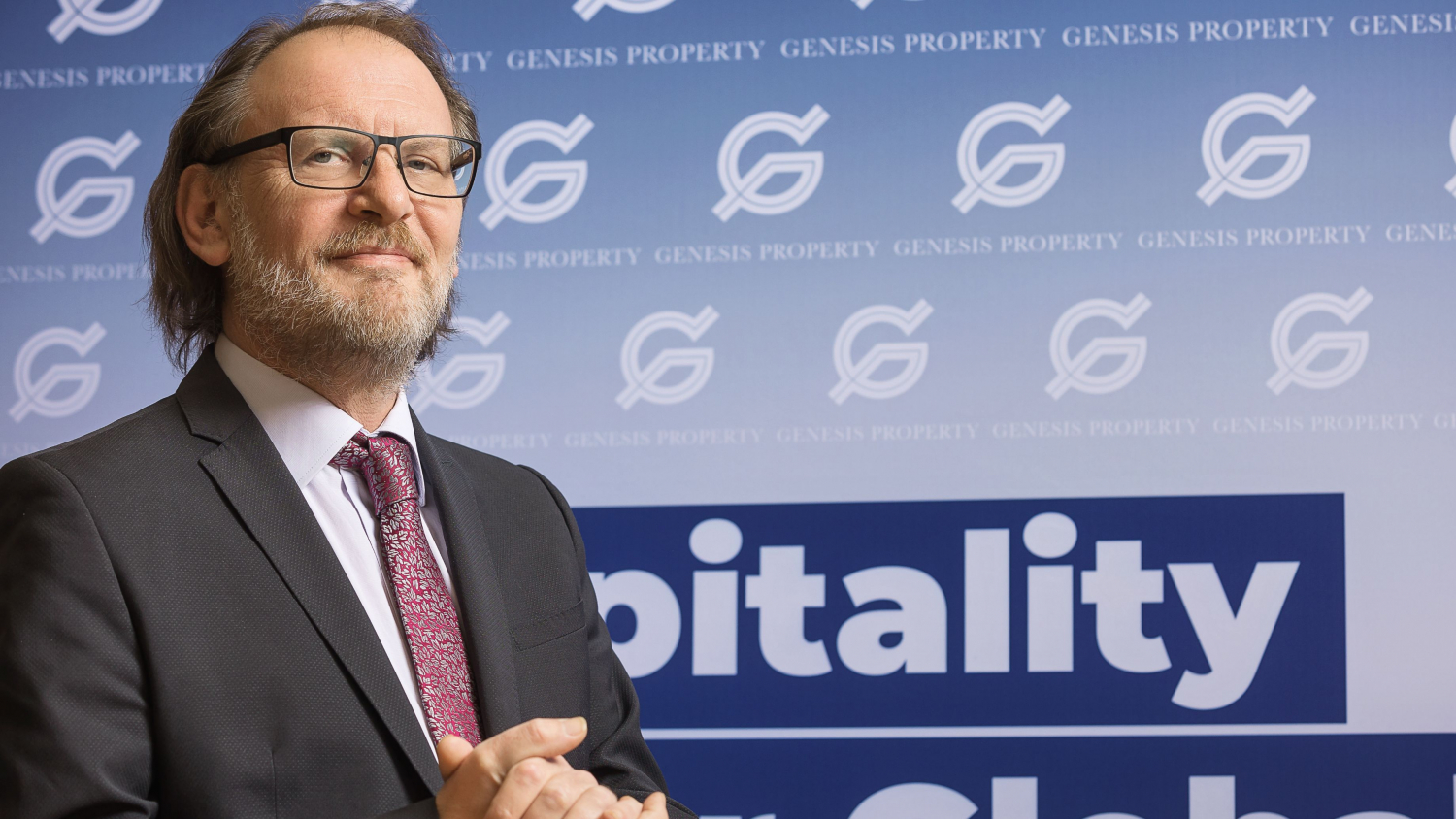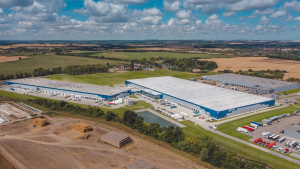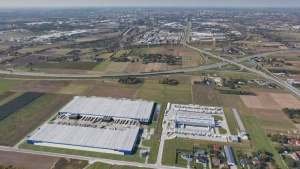
Gavin Bonner, Vice President at Genesis Property spoke to Property Forum about the IMMUNE ™ Building Standard, a global certification standard to certify the built environment’s level of immunity to withstand present and future health challenges.
This interview was first published in Property Forum’s first annual “The 50 most influential people on Romania’s real estate market” publication.
The IMMUNE Building Standard was launched almost a year ago. How would you summarise the progress it has made since then?
The IMMUNE Building Standard™ was launched mid-pandemic, in April 2020, as a response to the health challenges generated by COVID-19 for people, businesses and overall economies. The international media, collaborators and many business leaders showed great interest in this innovative standard designed to boost the immunity of our built environments and contribute to creating healthier buildings by design for a healthier future.
In December 2020, after just 8 months, we already had the first IMMUNE™ building in London. In March 2021, we announced the first IMMUNE™ factory, in the UK, a clear sign that the standard is flexible and can be adapted to many types of workplaces. In May 2021, we announced the third IMMUNE™ building, also located in the UK. We have discussions in progress in multiple countries and locations for new certifications, confirming the world’s focus on creating more resilient buildings, ready to withstand current and future health threats. Meanwhile, the standard is constantly evolving, being very adaptable and flexible and always aiming to encapsulate the latest developments in health and safety.
To give just one example, The IMMUNE Building Standard™ included a little over 100 recommended measures when it was launched, but today it has 135 coherent measures and practices grounded in science, perpetual and ready to activate, showing clear proof of progress. At the same time, the Healthy by Design Building Institute, the accreditor awarding buildings with the IMMUNE™ certification, has also marked its first major milestone in expanding the standard beyond office buildings for which IMMUNE™ was primarily designed, into other real estate sectors that have been impacted by the Covid-19 pandemic such as the industrial segment.

Gavin Bonner
Vice President
Genesis Property
Other standards like LEED or WELL also cover health measures in built environments. How is The IMMUNE Building Standard™ different?
This pandemic is not the first and it might probably not be the last either and let’s not forget about the seasonal flus that happen twice a year and other health challenges that may occur, even if on a smaller scale than the coronavirus pandemic. Therefore, the world needs to be better prepared, at large scale, to deal with health challenges in a sustainable way, minimizing risks. The IMMUNE Building Standard™ places a great magnifying glass on health, being the most complex standard that boosts the immunity of buildings and increases their resilience against pandemics and other bacteriological or toxicological threats. Inspired by technologies and procedures grounded in science, this innovative standard that better prepares people, businesses and communities to withstand health threats is a blueprint for the healthy buildings of the future. What makes IMMUNE™ unique is that it has a 360 degrees approach to boosting the immune system of built environments, combining perpetual with ready-to activate procedures in case there is an immediate need to isolate an exposed person, depending on the risks, all closely monitored and implemented by an IMMUNE™ Steward.
According to your recent survey, close to half of employees in Romania would like to return full-time to offices. How do you see that being realized in a safety-focused way?
More and more people want to return to their offices to have a more balanced professional and personal life. But to help people regain their trust long-term, companies need to take action to protect their health. Many building owners or tenants implemented some health and safety measures in their premises to prepare for the return to the office, but this is not enough in the long term. Most people want to see a significant focus on their health to regain trust and return to the office, which means a complex and standardized set of measures is necessary in any office building. This is the great advantage of IMMUNE™ certification: it offers trust, transparency and professionalism.
Do you expect landlords and tenants to invest more in health and safety going forward? Do you see health and safety becoming a key factor in defining what an attractive workspace is?
More and more people want to see landlords and tenants place a greater emphasis on redesigning and reengineering offices to ensure health measures that can give them ease of mind when in the office and collaboration among teams in social distancing conditions.
In the future, employees will value the health of their workplace more than they did before COVID-19 and will choose to work in buildings that are designed to protect their health, which will put pressure on companies to invest in healthy building measures to remain competitive in attracting tenants. According to a survey conducted last year by Genesis Property, 41% said that they will more carefully evaluate the technologies that are available in the workplace to ensure better protection for their health. At the same time, more efficient air and water filtration systems were considered the most important measures, according to 58% of employees, alongside better hygiene systems in restrooms and more efficient solutions to ensure social distancing.
A significant share of employees would prefer hybrid working regimes. How will fewer people spending less time in offices (compared to the pre-pandemic period) affect workplace strategies? Could hybrid working regimes result in less demand for office space?
First of all, the most common hybrid work system that the employees want, according to our surveys, is one with 3-4 workdays from the office and 1-2 workdays from home. This is largely considered the system that offers the best balance between personal and professional life, in most situations. Also, according to the social distancing rules that will most probably prevail even after COVID-related restrictions are eased, to ensure employees’ social distance within the office, employers need to increase the space allocated per employee. In these conditions, even with 2 workdays from home, it is very hard to imagine why a company would reduce their office space while employing the same number of people. Moreover, the economic conditions are getting better very fast, and the tenants will have to build a solid and strong team to keep up with this dynamic.
How can companies that are “stuck” in a lease better utilise the space they have?
We don’t believe that there are companies “stuck” in a lease. Contractual terms are mutually agreed upon and, after the COVID-19 outbreak, landlords and tenants collaborated even more than before in order to find the best solutions for both sides in the face of challenges brought by the health crisis. In the Class A office segment, contracts are generally signed for about 5 years, on average, a contract length that is considered the most balanced for all sides. The class A office market segment has been more resilient in the current context, as spaces are occupied mostly by large multinational companies that have been in a strong position to withstand the effects of the pandemic and that rapidly adapted to the new remote or hybrid working models, ensuring business continuity and a good foundation for recovery and future growth.
Of course, the workplace of the future will need to be redesigned to fit the health and safety needs of businesses and people alike. Some companies may find they need even more space to accommodate their future way of working. Others might consider reducing their space needs, in which case perhaps the most common and effective is subleasing for determined periods of time. Right now, we are already seeing clear signs of economic recovery, with 2022 expected to be on the same level of demand as 2019, which means good potential for companies on their way back to the office.



